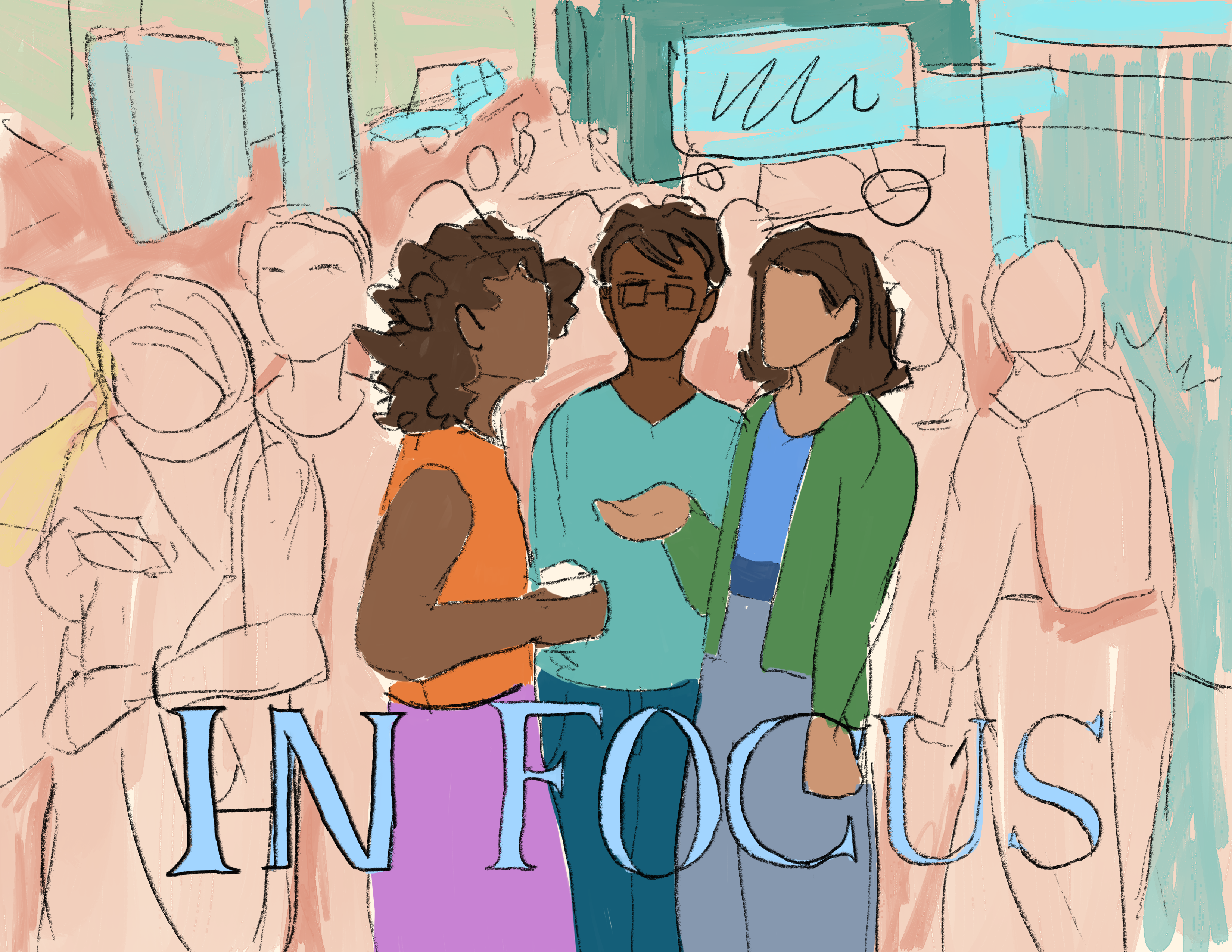Srithanya Satish ’27 analyzes films that spotlight the diverse and vibrant South Asian experience in her column, “In Focus: South Asian Stories through Film.”
Set in the picturesque, backwater-surrounded village of Kumbalangi in Kerala, India, “Kumbalangi Nights” is a Malayalam film that dives deep into the unconventional family dynamic of four brothers. The Napoleon brothers are seen as flawed, disillusioned and reckless. Saji (Soubin Shahir), the eldest, grapples outwardly with making a living and physically with his free-spirited and rambunctious younger brother Bobby (Shane Nigam). Bonny (Sreenath Bhasi), the reserved, mute second oldest, has detached from the family and mainly associates with other local men and fishermen. However, Bonny retains strong affections for the disillusioned youngest brother and main caretaker of the family, Franky (Matthew Thomas). Though each of these characters are distinct in nature, we come to see them as distinctly human.
Breaking through all barriers and facades, this movie paints a beautiful portrait of each of these characters acting boldly and transparently in their own element. The film highlights how strength in vulnerability and unity is what entails true character — and it is how the brothers prevail against reigning ideals of manhood and family.
“Kumbalangi Nights” cleverly balances its light-hearted, countryside springiness with its deeper themes of familial instability. Among the warm, woody tones of the Napoleons’ quaint home or the serene green of the lush Kumbalangi trees, even the periods of silence between the brothers or within their environment speak volumes.
From the first on-screen tussle between Saji and Bobby at their childhood home, an immediate playful yet immature tone is set. Saji’s impromptu sensitivity when reminded about their father’s death anniversary rivals Bobby’s bluntness detailing Saji as a “show-off.” Their following argument over their mutual joblessness heightens as expert cinematographer Shyju Khalid frames them parallelly and incrementally zooms in, exploiting the cracks of their machismo as their eventual physical confrontation mimics a playground fight that needs Franky to mediate rather than a mature talk between adults.
We begin to learn firsthand about these brothers’ lives through their independent interactions apart from their family setting. Bobby spends his days leisuring in hammocks with his friend underneath the sprawling palm trees. Saji chats away, reliant on earnings from his friend Murugan (Ramesh Thilak) who runs his own business. Bonny quietly and dejectedly observes his brothers’ squabbles from his friend group. Slowly, their stagnance in their days shifts as Bobby falls in love with another girl from their village, Baby (Anna Ben), and Bonny starts dating a visiting tourist from America, Nylah (Jasmine Metivier). These intermediary “slice-of-life” sequences are anchored by the versatile Sushin Shyam and his emotional, guitar-filled music score that effuses a youthful, dream-like atmosphere. The subtle blooming of love through an authentic lens was very refreshing to observe.
But these brothers’ lives could only move forward after they faced what has been plaguing them this whole time: the loss of their parents. Most prominently, a depressed Saji displays a heartbreaking performance when he finally asks for help and breaks down in front of a therapist.
Shahir rawly portrays Saji’s pent up worries and self-doubt, which became exacerbated by his father’s death. His growing numbness and blank eyes let us see how much he was struggling as the supposed “head of the family.” But by letting himself break down, it allows him to relieve the guilt that’s been stirring inside of him, and the audience observes Saji’s renewed hope as he builds his family back up.
Shammi (Fahadh Faasil) really highlights the dichotomy between our main brothers’ poorly perceived exterior and their core being, subverting the traditional idea of masculinity and instead amplifying its toxicity. Played brilliantly and increasingly eerily in the movie by Faasil, Shammi is the new brother-in-law of Baby who becomes a new overseer in her life. He holds strongly to the ideals of being a “complete man,” full of rigidity and a symbol of order who strictly adheres to the “rules” drawn by society and class.
I grew unsettled with his taut, plastered-on smile that was quick to dissolve at the tiniest disturbance. He does not stray from these unrealistic standards as he takes pride from them, finding amusement and satisfaction in asserting his power — even if that entails scaring his own wife Simmi (Grace Antony) or explicitly chuckling underneath his thickly groomed mustache about the absurdity of a man’s place in the kitchen. However, underneath this seemingly coordinated and polished appearance is a brewing short fuse that is more unstable than any of the brothers’… and is at risk to blow.
Throughout this film, the word “man” and its precarious nature is approached many times and in many different ways. But its definition, especially its socially-upheld one of hypermasculinity, is challenged both by women and the men itself. “Kumbalangi Nights” is a trailblazing film that breaks down cultural taboos and makes a “so what?” statement while doing so. At its heart, it tells the story of four boys who had to survive independently and turn into “men” too soon — but by reuniting with one another and themselves, they prosper.
Editor’s Note: This article is a review and includes subjective thoughts, opinions and critiques.
